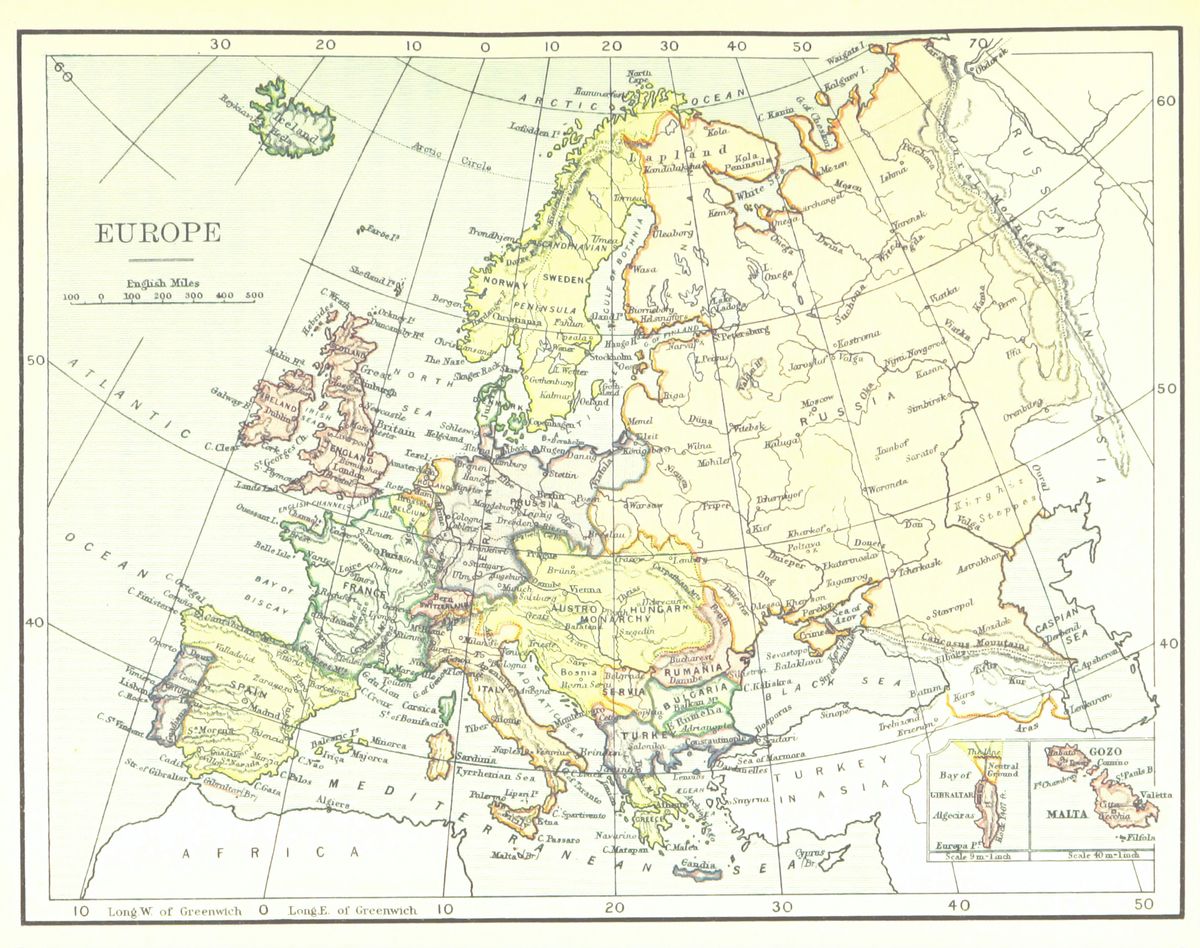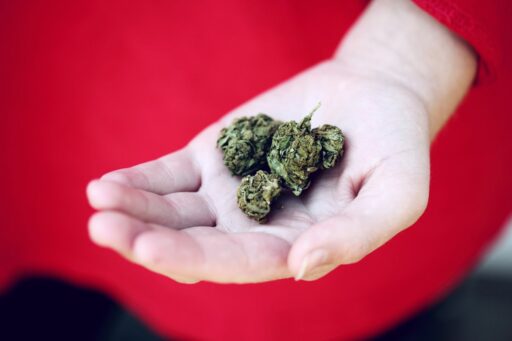The landscape of marijuana legalization is a complex tapestry that varies significantly across the globe. As countries and states enact different policies regarding the use, sale, and cultivation of cannabis, it becomes increasingly important to understand the legal status of marijuana in various regions. This article, ‘Marijuana Map: Identifying Areas Where Marijuana Is Legal,’ offers a detailed examination of the current state of marijuana laws around the world, the United States, and Europe, as well as the ongoing policy reform movements and the challenges faced by legalization efforts.
Key Takeaways
- The global status of marijuana legalization is diverse, with some countries fully legalizing it, others decriminalizing it, and many recognizing its medical use.
- In the United States, marijuana legalization varies by state, with some allowing recreational use and others only permitting medical use, despite federal illegality.
- European countries exhibit a range of cannabis laws, with some allowing recreational use and others focusing on medical applications and private use in social clubs.
- Policy reform movements are influenced by advocacy groups, public opinion, scientific research, and international drug treaties, all contributing to the evolving legal landscape.
- Legalization brings challenges and controversies, including debates over public health, safety, crime rates, regulatory frameworks, and international cannabis trade.
Global Overview of Marijuana Legalization

Countries Where Marijuana Is Fully Legal
In a growing number of countries around the world, the use, sale, and possession of marijuana have transitioned from being illegal to fully legal. This shift reflects a significant change in drug policy, as nations adapt to new research and public opinion. The list of countries embracing full legalization is still relatively short but is expected to expand as legalization movements gain momentum globally.
- Uruguay
- Canada
- South Africa
- Georgia
- Some states in Australia
- Certain jurisdictions in the United States
While the legal landscape is rapidly evolving, the implications of full legalization are still being studied, with a focus on public health, economic impact, and social justice.
It’s important to note that even within countries where marijuana is legal, regulations can vary greatly from one region to another. For instance, in the United States, marijuana remains illegal at the federal level, but several states have passed their own laws permitting its use. As the global community watches these pioneering countries, the outcomes of their policies will likely influence international approaches to marijuana legislation.
Nations with Decriminalized Cannabis Use
A growing number of nations are adopting a more lenient approach to cannabis use, opting for decriminalization over full legalization. Decriminalization does not equate to legal status, but it does mean that possession of small amounts for personal use is not treated as a criminal offense, often resulting in fines or drug education rather than jail time.
- Portugal
- Netherlands
- Czech Republic
- Spain
Decriminalization policies aim to reduce the burden on the judicial system and shift the focus from punishment to public health.
While decriminalization is a step away from prohibition, it varies significantly between countries in terms of possession limits and enforcement. This nuanced approach reflects a shift in international attitudes towards cannabis, acknowledging the need for reform in drug policy.
Medical Marijuana: A Worldwide Phenomenon
The global landscape of medical marijuana is a tapestry of progressive policies and regulatory frameworks. Countries around the world have recognized the therapeutic benefits of cannabis, leading to its widespread acceptance for medical use. The adoption of medical marijuana laws varies significantly, with some countries having fully integrated systems, while others are in the early stages of implementation.
- In nations like Canada, Germany, and Australia, comprehensive medical marijuana programs are in place, providing patients with legal access to cannabis for a variety of conditions.
- Other countries have more restrictive programs, limiting use to a narrow list of medical conditions or allowing only non-psychoactive forms of cannabis.
- Research and development in the field of medical cannabis continue to grow, with many countries investing in studies to further understand its potential.
The shift towards embracing medical marijuana globally signifies a transformation in how societies view and utilize this once-stigmatized plant.
Despite the progress, international regulations and the illegal status of cannabis in many parts of the world create a complex environment for patients, healthcare providers, and governments. The challenge lies in balancing the need for access to medical marijuana with ensuring proper control and preventing misuse.
Pending Legislation and Future Prospects
As the cannabis industry looks ahead, the trajectory of marijuana legalization is poised for further expansion. With 2023 in the rearview mirror, experts anticipate that the momentum for reform will not only persist but also accelerate. Legalization and reform at the state level are likely to continue in 2024, buoyed by the public support for cannabis legalization reaching an all-time high in the previous year.
The landscape of marijuana policy is rapidly evolving, with numerous bills and initiatives on the horizon. This dynamic environment presents both opportunities and challenges for stakeholders.
Looking at specific regions, we can expect a variety of legislative activities. Some countries and states are on the cusp of introducing new laws, while others are amending existing regulations to better align with the current societal and economic context. The table below outlines some of the key areas to watch:
| Region | Status | Expected Changes |
|---|---|---|
| Region A | Decriminalized | Full Legalization |
| Region B | Medical Use | Recreational Bill |
| Region C | Illegal | Medical Program |
As these developments unfold, it is crucial for businesses, consumers, and policymakers to stay informed and engaged with the legislative process to navigate the evolving legal landscape of marijuana.
Marijuana Legalization in the United States

States with Legal Recreational Marijuana
As of the latest updates, numerous states have embraced the legalization of marijuana for recreational use. This shift reflects a significant change in public policy and perception regarding cannabis.
The following states have legalized recreational marijuana:
- Alaska
- California
- Colorado
- Illinois
- Maine
- Massachusetts
- Michigan
- Nevada
- Oregon
- Vermont
- Washington
Legalization has led to the establishment of a regulated market for cannabis, with states setting up systems for licensing, production, and sales. This has not only created new economic opportunities but also posed regulatory challenges.
Each state has its own specific regulations and limits on possession, cultivation, and use. For instance, while some states allow home cultivation of a limited number of plants, others restrict cultivation to commercial entities only.
Medical Marijuana Programs Across the States
Across the United States, medical marijuana programs vary significantly from state to state. Each state has its own set of regulations and qualifying conditions for patients seeking to use cannabis for therapeutic purposes. For instance, some states have a wide list of qualifying conditions, while others may be more restrictive.
To become a participant in a medical marijuana program, individuals typically need to follow a series of steps. These often include obtaining a certification from a licensed healthcare provider, registering with the state’s cannabis program, and receiving a medical cannabis card. For example, in Minnesota, patients must get their medical condition certified online in the Medical Cannabis Registry.
The evolution of medical marijuana programs reflects a growing recognition of cannabis’s potential benefits for patients with various medical conditions. However, the landscape is complex and continues to evolve as new research emerges and states adjust their policies.
The Federal Stance on Cannabis
Despite the growing number of states legalizing marijuana for medical and recreational use, federal law still classifies cannabis as a Schedule I substance. This classification places it alongside drugs considered to have a high potential for abuse and no accepted medical use. However, there is a significant push for change at the federal level.
The most substantial cannabis legislation from 2023 aims to legalize cannabis at the federal level and establish a comprehensive framework for regulation. This proposed legislation would not only decriminalize marijuana but also expunge past convictions and reinvest in communities most affected by the war on drugs.
The tension between state and federal laws creates a complex landscape for businesses and individuals navigating the cannabis industry.
While the future of federal marijuana policy remains uncertain, the momentum for reform continues to build, influenced by public opinion and economic considerations.
Impact of Legalization on State Economies
The legalization of marijuana has had a significant impact on state economies, with many states witnessing a surge in tax revenues and job creation. The cannabis industry has also spurred investment in related sectors such as agriculture, retail, and technology.
- Tax Revenues: States with legal recreational marijuana have collected substantial tax revenues from cannabis sales. For example, Colorado has generated over $1 billion in marijuana tax revenue since legalization.
- Job Creation: The industry has created thousands of new jobs, from cultivation and processing to sales and marketing.
- Ancillary Benefits: Legalization has led to increased tourism, with ‘cannabis tours’ becoming a popular attraction in some states.
The economic benefits are accompanied by challenges, including the need for effective regulatory frameworks to manage the growth of the industry and ensure public safety.
While the economic advantages are clear, it is important to consider the full spectrum of legalization’s impact, including social and public health implications. States continue to refine their approaches to cannabis regulation, aiming to balance economic growth with responsible governance.
The European Landscape of Cannabis Laws

Countries Leading in Marijuana Legalization
In the evolving landscape of cannabis laws, certain European countries have emerged as leaders in marijuana legalization. Malta stands out as a trailblazer, having become the first country in the European Union to legalize cannabis for adult-use in 2021. The Cannabis Reform Act allows consumers to engage with the plant under regulated conditions.
Following Malta’s progressive steps, other nations are also reevaluating their cannabis policies. While full legalization is still rare, decriminalization and medical cannabis programs are becoming more prevalent across the continent.
The shift towards legalization reflects a broader trend of recognizing the potential benefits of cannabis, both medically and economically, while also addressing the social justice issues associated with its prohibition.
As the legal landscape continues to change, it is crucial to monitor the developments and the impact they have on society and the economy.
Medical vs. Recreational Use in Europe
In Europe, the legal landscape of cannabis is complex, with a clear distinction between medical and recreational use. Medical marijuana is widely recognized and legal in numerous European countries, offering relief to patients with various conditions. However, recreational use remains largely illegal, with a few exceptions where it has been decriminalized or is tolerated in small amounts for personal use.
- Germany’s recent legislation marks a significant shift in the European cannabis policy. The law generally decriminalizes cannabis, allows for home cultivation, and introduces the concept of ‘cultivation social clubs’.
- Spain and the Netherlands have a more relaxed approach to cannabis, with the latter famous for its coffee shops, while the former has its cannabis social clubs operating in a legal grey area.
- In contrast, countries like France and Sweden maintain strict anti-cannabis laws, with heavy penalties for possession and use.
The evolving policies reflect a growing recognition of the therapeutic benefits of cannabis and a gradual shift towards more liberal stances on recreational use. However, the pace of change varies significantly across the continent, and full legalization remains a distant prospect in many nations.
Cannabis Social Clubs and Private Use
In regions where marijuana remains illegal for commercial sale, cannabis social clubs have emerged as a model to facilitate private use among members. These clubs operate on a non-profit basis, where marijuana is collectively grown and distributed among members, often circumventing the commercial market. This model has gained traction in several European countries, providing a legal gray area for cannabis enthusiasts to enjoy the plant’s benefits without contravening local laws.
While not universally accepted, cannabis social clubs represent a unique approach to marijuana consumption, emphasizing community and shared responsibility over commercialization.
The private use of marijuana, distinct from social clubs, typically refers to the consumption of cannabis within the privacy of one’s home. Many jurisdictions that have decriminalized or legalized cannabis have set clear boundaries for private use, often including possession limits and restrictions on public consumption. Below is a list of key points regarding private use:
- Private use is usually allowed in places where cannabis is decriminalized or legalized.
- Possession limits are often imposed to prevent distribution.
- Consumption in public spaces remains largely prohibited.
- Age verification and other regulatory requirements may apply.
European Union’s Role in Cannabis Regulation
The European Union (EU) plays a pivotal role in shaping the cannabis policies of its member states. While the EU does not have a unified stance on cannabis legalization, it influences national laws through regulations and directives. Member states retain the autonomy to enact their own cannabis laws, but must also consider EU-wide treaties and trade agreements.
- The EU’s drug strategy focuses on a balanced approach to drug use, including cannabis, emphasizing both demand and supply reduction.
- Harmonization of laws among member states is encouraged to facilitate cooperation in combating drug trafficking.
- The EU provides funding for research on drug use and supports harm reduction initiatives.
The complexity of cannabis regulation within the EU stems from the need to balance national sovereignty with collective action against drug-related issues.
Recent developments in individual member states, such as the German MPs approving a new cannabis law, reflect a trend towards more liberal policies. The new law allows for the possession of 50g of cannabis for private consumption and growing up to three plants. This move by Germany could signal a shift in the broader EU perspective on cannabis regulation.
Marijuana Policy Reform Movements

Advocacy Groups and Their Influence
The landscape of marijuana policy reform is significantly shaped by the efforts of various advocacy groups. These organizations work tirelessly to educate the public, lobby for legislative changes, and support legal challenges that advance the cause of legalization. Among them, the National Organization for the Reform of Marijuana Laws (NORML) stands out as a pioneering entity that has been at the forefront of the movement since the 1970s.
- National Organization for the Reform of Marijuana Laws (NORML): A leading voice in the push for cannabis reform.
- Drug Policy Alliance (DPA): Focuses on broad drug policy reform and harm reduction.
- Marijuana Policy Project (MPP): Aims to increase public support for non-punitive, non-coercive marijuana policies.
- Americans for Safe Access (ASA): Advocates for medical marijuana access and research.
The collective impact of these groups is a testament to the power of organized advocacy in shaping public policy. Their influence extends beyond mere campaigning; they are instrumental in drafting legislation, mobilizing voters, and framing the discourse around cannabis legalization.
Public Opinion and Shifting Attitudes
The tide of public opinion on marijuana legalization has seen a significant shift over recent years. Surveys consistently indicate a growing acceptance of cannabis, both for medicinal and recreational use. This change in sentiment is often attributed to increased awareness of marijuana’s potential benefits and a broader cultural shift towards liberalization of drug policies.
- A majority of adults in several countries now support legalization.
- Younger generations are particularly in favor, suggesting a trend that will continue.
- Personal experiences with medical cannabis have swayed some skeptics.
The evolving public opinion is not only shaping legislation but also influencing the pace at which laws are changing. As perceptions continue to evolve, so too does the legal landscape, with many jurisdictions reevaluating their stance on cannabis.
The impact of this attitudinal change is palpable in political arenas, where once contentious debates are giving way to constructive discussions on the best ways to regulate and integrate cannabis into society. The shift in public opinion is a critical driver of the marijuana policy reform movement, underscoring the importance of societal attitudes in shaping law and policy.
The Role of Scientific Research in Policy Changes
The intersection of scientific research and cannabis policy is pivotal for informed decision-making. Federal scientists have recently recommended easing restrictions on marijuana, acknowledging its potential medical uses and lower risk profile compared to drugs like heroin. This shift in scientific opinion is a critical driver for policy reform.
- Scientific findings on cannabis efficacy and safety
- Comparative studies with other controlled substances
- Research on public health implications
The evolving landscape of cannabis research continues to shape the legal frameworks around the world, influencing both public opinion and legislative action.
As research progresses, the data collected not only informs policymakers but also helps in dispelling myths and misconceptions about cannabis use. It is essential for ongoing studies to be transparent, robust, and widely disseminated to ensure that policy changes are grounded in empirical evidence.
International Drug Treaties and Reforms
International drug treaties have long played a pivotal role in shaping national policies on cannabis. The Single Convention on Narcotic Drugs of 1961 is one such treaty that has influenced global marijuana laws, often limiting the scope for legalization. However, recent years have seen a shift, with some countries choosing to interpret the treaty in ways that allow for cannabis reform.
The landscape of international drug policy is evolving, with a growing number of nations re-examining their stance on cannabis in light of new evidence and changing public opinion.
Reforms are not uniform, and the pace of change varies widely. Here’s a brief overview of the current state of international drug treaties and cannabis reforms:
- Revision of treaties: Some countries advocate for the amendment of international drug treaties to reflect contemporary views on cannabis use.
- National sovereignty: Nations are asserting their right to develop drug policies that suit their unique social and cultural contexts.
- Health-focused approaches: There is a trend towards adopting policies that prioritize public health over punitive measures.
- Cannabis for development: Discussions are underway about how legal cannabis markets can contribute to economic development, especially in regions where cannabis is traditionally cultivated.
Challenges and Controversies Surrounding Legalization

Debates Over Public Health and Safety
The legalization of marijuana has sparked intense debates over its impact on public health and safety. Concerns range from increased substance abuse to impaired driving, with various studies contributing to the discourse. For instance, research indicates that recreational marijuana legalization (RML) may be linked to a rise in workplace injuries among younger adults.
- A study highlighted a 10% increase in workplace injuries among individuals aged 20 to 34 in areas with legal recreational marijuana sales.
- Public health officials worry about the potential for increased emergency room visits due to overconsumption or accidental ingestion, especially in children.
- Safety advocates point to the challenges of measuring impairment and enforcing DUI laws as marijuana does not have a clear legal limit like alcohol.
While the economic benefits of legalization are often touted, the long-term public health consequences remain a subject of heated debate, necessitating ongoing research and policy evaluation.
Legalization’s Effect on Crime Rates
The debate on the impact of marijuana legalization on crime rates is ongoing, with various studies presenting differing outcomes. One consistent finding is the reduction in arrests for marijuana possession, which significantly eases the burden on the criminal justice system. However, the effects on other types of crime are less clear and require further investigation.
- Reduction in arrests for marijuana possession
- Ambiguous impact on violent and property crimes
- Potential decrease in drug-related law enforcement costs
The data supports that medicinal and recreational marijuana legalization decreases prison rates for Whites and Blacks, but not for Hispanics.
While some argue that legalization could lead to an increase in certain crimes, such as driving under the influence, others suggest that it allows law enforcement to focus on more serious offenses. The full spectrum of legalization’s effect on crime rates is still being mapped out, with ongoing research needed to draw definitive conclusions.
Regulatory Challenges for Governments
As governments around the world grapple with the legalization of marijuana, they face a myriad of regulatory challenges. These challenges stem from the need to balance public health, safety, and the economic benefits of a legal cannabis market.
- Establishing comprehensive regulatory frameworks is crucial to ensure product safety and quality control.
- Taxation and revenue collection must be effectively managed to support public services.
- Preventing illegal market activity remains a priority to undercut the black market.
- Enforcement of age restrictions and advertising guidelines is necessary to protect youth.
The complexity of creating systems that can adapt to the evolving landscape of cannabis legalization cannot be understated. It requires a coordinated effort across multiple government agencies and a clear understanding of the market dynamics.
A recent report highlights some of the inherent problems posed by legislation legalizing cannabis, including the risk of increased consumption and the challenge of integrating legal markets with existing international treaties.
International Trade of Legal Cannabis
The international trade of legal cannabis is a complex and evolving landscape. Countries that have legalized marijuana for medical or recreational use are exploring export opportunities to expand their economic reach. However, this trade is heavily regulated due to international drug control treaties and the varying legal status of cannabis across nations.
- Canada: One of the first movers in the global cannabis market, exporting medical marijuana.
- Netherlands: Known for its cannabis coffee shops, also exports medical cannabis.
- Uruguay: The first country to fully legalize cannabis, now engaging in international trade.
- Israel: A leader in cannabis research, has begun exporting medical cannabis.
The potential for international trade in cannabis is significant, but it is constrained by legal and regulatory challenges. As more countries consider legalization, the dynamics of this trade are likely to shift, presenting both opportunities and hurdles for governments and businesses alike.
Conclusion
As we navigate the evolving landscape of marijuana legalization, it’s clear that the patchwork of laws across different regions can be complex and often confusing. This ‘Marijuana Map’ has provided a comprehensive overview of areas where marijuana is legal, whether for medical or recreational use. It’s important for individuals to stay informed about the legal status of marijuana in their area to ensure compliance with local regulations. Moreover, the conversation around marijuana legalization continues to develop, with potential changes on the horizon as more research emerges and public opinion shifts. Whether you’re a policy maker, a consumer, or simply an interested observer, keeping up-to-date with this dynamic field is essential for understanding the broader implications for society and the economy.
Frequently Asked Questions
In which countries is marijuana fully legal?
Countries where marijuana is fully legal include Canada, Uruguay, and some states in the United States, among others. The legal status can vary greatly from one country to another, so it’s essential to check the current laws of each country.
What does it mean when cannabis use is decriminalized?
Decriminalization of cannabis means that possession and use of small quantities for personal use do not result in criminal charges, but may still result in fines or other legal penalties. It’s a step towards reducing the legal repercussions associated with marijuana use.
How widespread is medical marijuana legalization globally?
Medical marijuana is legalized in many countries around the world, with varying degrees of access and regulation. Countries have recognized the therapeutic benefits of cannabis and have established programs for patients to receive medical cannabis under certain conditions.
What is the federal stance on cannabis in the United States?
At the federal level, marijuana remains classified as a Schedule I controlled substance in the United States. However, several states have passed their own laws legalizing medical and/or recreational marijuana use, creating a complex legal landscape.
How has marijuana legalization impacted state economies in the U.S.?
States that have legalized marijuana have seen significant economic benefits, including increased tax revenues, job creation, and business opportunities in the cannabis industry. However, the economic impact can vary based on the regulatory framework and market maturity.
What are the main challenges faced by governments in regulating legal cannabis?
Governments face challenges such as ensuring product safety, preventing underage use, establishing tax structures, managing supply and demand, and addressing the black market. There are also international legal implications and the need for consistent enforcement of regulations.





